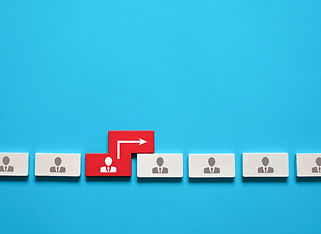Fellow of the American Psychological Association, Media Psychologist, and Author
Memoir Writing, Blogging, and Ghostwriting
Weekly Doses of Pop-up Psych
We all make cringey mistakes and deserve to move on, rather than feel confused or regretful after an icky social situation. Each week, I will dissect a murky social, life cycle, or pop culture topic to help you understand, learn, and move on. As a former academic, I am a super-picky consumer of research (and you should be too) as well as the content I create and share, so those new solutions, data and/or additional resources have certainly met my approval.
Nepotism Unveiled: Understanding the Essence of Favoritism
“They only got that because of so and so.” You’re scrolling through your feed and reading about another “Nepo baby” scoring a huge opportunity. Whether they landed a great acting role, were gifted a business, or got handed a dream job, you can’t help but wonder if that person had the actual talent and merit to score their own deal.

Connections aren’t magicians
The world is one big web of interconnections. People know people who know people, so networking is one of the most essential skills to master. There are so many imposters, people who are grossly inexperienced, that we rely on word-of-mouth and Google reviews to verify we are working with the right people. People talk-especially when they either have fantastic or horrendous experiences with a brand. Regardless if it’s a plumber, restaurant, physician, hotel, or form of entertainment, people will talk about what it’s like to work with them and the quality of their work and the public reacts with their wallets, low ratings, poor sales, and empty venues.
YouGov studied nepotism in 2023. They found that 43% of respondents said they have used a friend or family connection for a job opportunity and 35% admitted to benefitting from a personal connection. Twenty-four percent of respondents revealed they lost out on job opportunities to other candidates with connections. Below is a nepotism table from YouGov broken down by fields. Politics had the highest rates of nepotism, whereas, medicine was the lowest, which is a relief since it’s a profession based on merit because you can’t really bluff your way through medical and nursing school, exams, internships, residencies, and certifications.

Nepos doesn’t mean talent
An influential last name doesn’t mean they are good at what they do. The name gets them in the door, but they only stay in the room because of their own talent and merit. The public is very perceptive, so when a Nepo with a big name who lacks talent bumps out an individual who truly deserves the opportunity, they risk getting a great deal of backlash. For instance, there was a well-known celebrity who had a podcast without any prior experience. Their name got them the opportunity, but once the person put on the headphones, the poorly-rated podcast was so boring and unlistenable, it was canceled after one season. Their name got them in the door, but their lack of talent didn’t keep them there and got them kicked out.

Nepos have to prove themselves
Have you noticed what happens when someone with a Nepo connection lands an opportunity? All eyes are on them with tremendous scrutiny. They are evaluated more heavily than most to prove they have earned that spot and deserve to be in the room. The celebrity podcaster mentioned above clearly didn’t realize they had to work harder than the average person to bust the myth that they only got there because of the connection. The public wants to be satisfied so they are not dishing out good ratings or spending money on people who just show up.
Nepos need to establish their own identity
Imagine a person being ambitious and talented, but nobody sees it because they are living under someone else’s shadow. Actions are louder than connections, so they need to shine extra bright to establish themselves to get their own invite or they will always be someone’s plus one.
Let’s look at your connections
Who are the VIPs of your professional network?
How are you a valuable connection to others?
Hi, Beautiful Readers! Thank you for reading this! I'm Dr. Joanne Broder, Media Psychologist, Author, and Fellow of the American Psychological Association. Please consider me to help you write your memoir, blogs, speeches, e-books, as well as coach you on your dissertation or thesis. Click here so we can connect!
